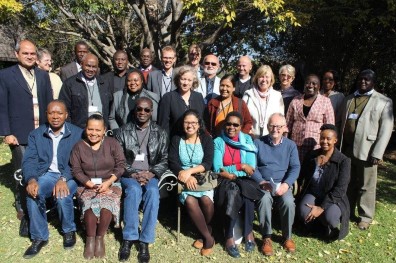Food security is considered humanity’s biggest challenge this century. Food production will need to increase between 60-110% in the next four decades to keep pace with demographic growth and changing consumption patterns. The question is whether the world can replicate the exploit of the second half of the past century, since this came at high costs, especially to the natural resource base.
The growth in agricultural production was achieved mainly through increased productivity per unit of land rather than by an expansion of cultivated area. As a result, many agricultural regions are now struggling with dwindling groundwater resources and closing river basins, while trends in productivity level are plateauing.
To meet the projected global food demands in a business-as-usual scenario, the world needs an additional 5.000 km3 of freshwater per year (a 70-90% increase compared to present use) and 1-1.4 billion hectares of new land for crop production and livestock (a 50-70% increase). This raises questions, such as: Where will the additional freshwater and land come from? And at what costs?
The workshop addressed these questions and the many complicated issues surrounding them. The organizers are hoping to create a space for ILC members, GWP Partners, and other interested organizations to share different perspectives (from science, law, policy making and practice), from different geographical settings and levels, on the land and water dimensions of the current global food security challenge. The organizers also want to initiate a global debate on the need and options for a coordinated governance of land and water.

